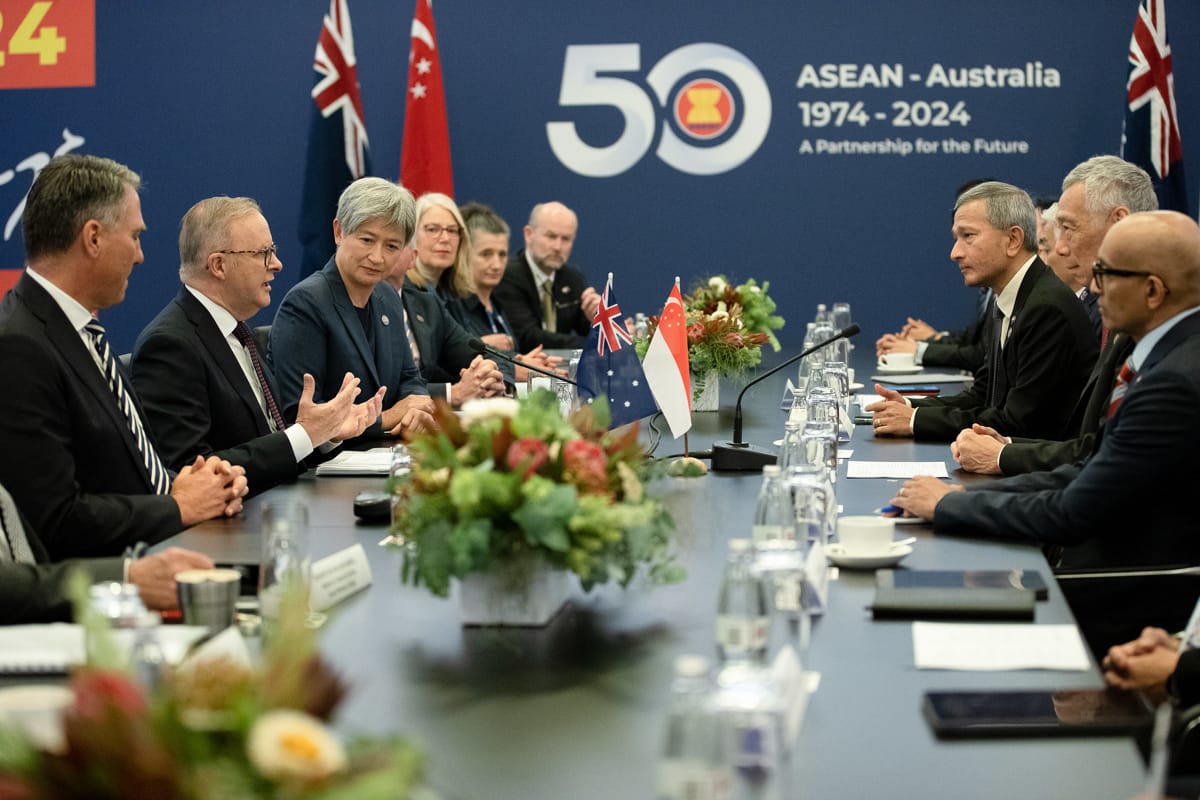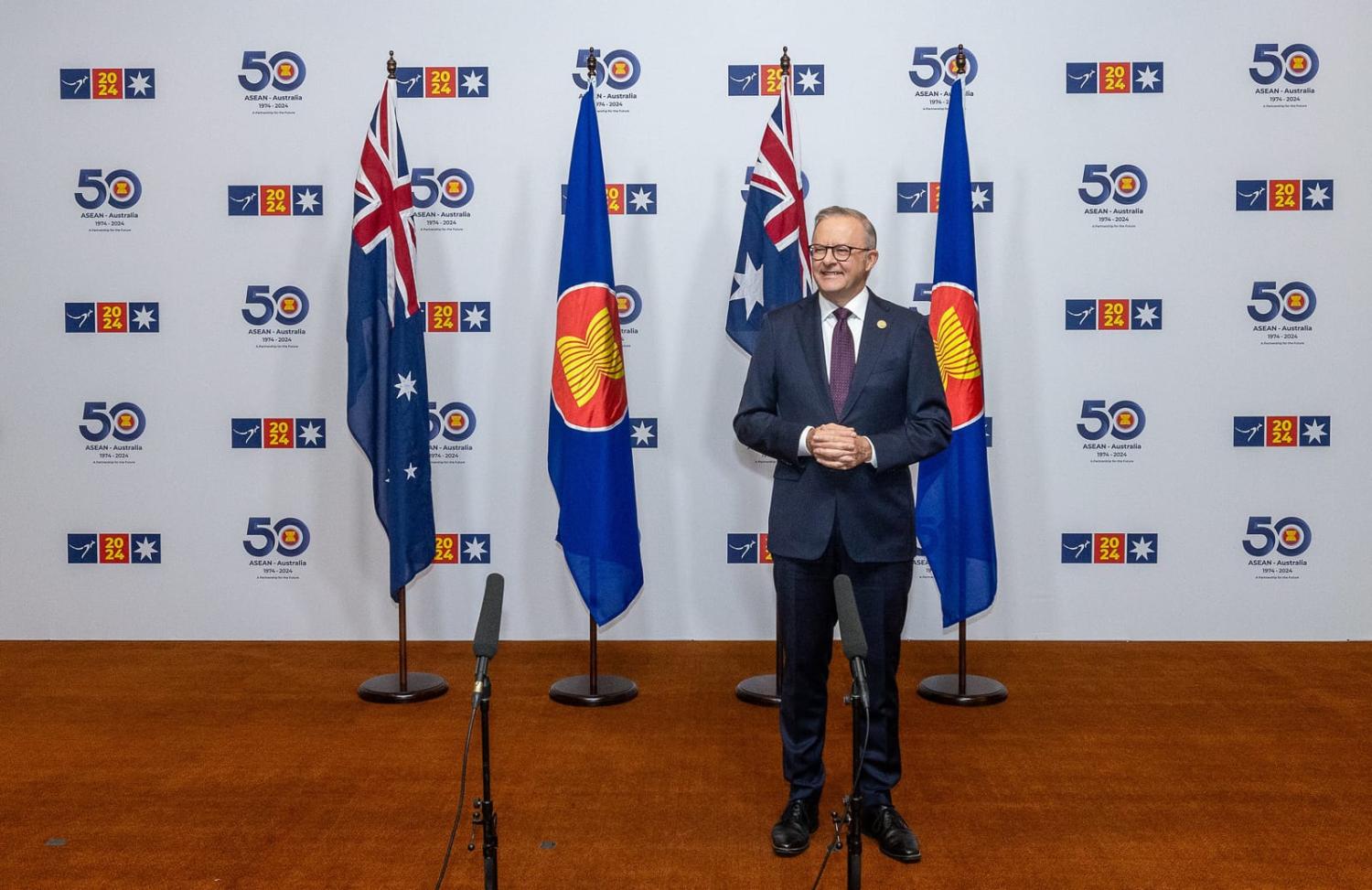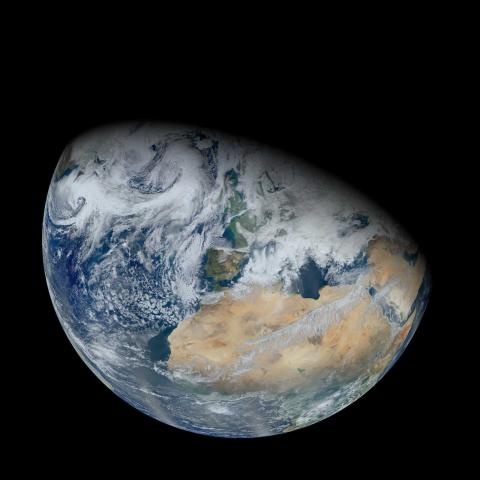Today is “bilat day” (short for bilateral) for Prime Minister Anthony Albanese at the ASEAN-Australia Special Summit in Melbourne. Call it diplomatic speed-dating, with lots of quick meetings in succession: shake hands, sit down, formalities, talking points, some frank discussion, stand up, shake hands.
Albanese started the day with ASEAN Secretary General Kao Kim Hourn, the first time the two had met formally. Then on to Singapore’s Lee Hsien Loong with gathered officials followed by a joint press conference. Late in the morning, Thailand’s Srettha Thavisin. Timor-Leste’s Xanana Gusmão in the afternoon, followed by the leaders of Brunei, Cambodia and Indonesia.
In between it all, a lunch with CEOs doing business in Southeast Asia.
At some point, Albanese will host a private dinner for the ASEAN leaders (minus Myanmar, plus Timor-Leste and New Zealand). Tomorrow he chairs the collective formalities.
Intense. Exhausting. The personal demands that these summits put upon leaders is often obscured by the big story that dominates the media for the day. Dollars announced, for instance, such as Albanese’s pledge today for a $2 billion Southeast Asia Investment Financing Facility, a move that follows a call last month from Lowy Institute’s Michelle Lyons, Roland Rajah and Grace Stanhope for Australia to “go big or go home” in assisting the region’s energy transition.
Yet it’s easy to forget that the leaders are themselves people, and that people can struggle under the weight of work. Sitting down with Albanese on Tuesday, Singapore’s Lee apologised for missing previous talks after contracting Covid. A body battery can go flat. And this is peacetime. Imagine the pressure on leaders and their decision-making in a crisis. Or, in the case of New Zealand’s PM, frustration when his government plane breaks down on heading to Melbourne.

Albanese could be forgiven after three days of non-stop summitting if he just wanted a break, but plans to host Vietnam’s Prime Minister Pham Minh Chinh later in the week will preclude that. Then domestic politics will truly take over as budget season looms in May. Albanese isn’t expected to travel overseas until at least the second half of the year.
So, this week in Melbourne appears intended to shape the foreign policy focus in the months ahead. The grand themes of regional rivalry or cooperation might be evident at the talks, but this summit has a practical focus. As the Business Council’s Bran Black put it when speaking to journalists, while it is good for Australia to have better relations with China, the aim is to have extraordinary relations with ASEAN.
This is a longstanding ambition for Australian diplomacy, perhaps underweighted in recent years because of the heavy focus on the Pacific. Southeast Asia is now collectively judged to be a larger trading market for Australia than it enjoys individually with Japan or the United States, so the trajectory of the economic ties with the neighbourhood has certainly improved. The goal, as ever, is more.
Practical steps should be welcome. Australians too often get caught up in debates about imagined futures at the expense of the here and now. Each small meeting can work towards a larger objective. Some aspects might be performative. Albanese, for example, told the ASEAN chief he supported the organisation's efforts to find a solution in Myanmar. Important, yet nothing really has changed.
The questions reporters lobbed at the PM focused mostly on the big controversies of the day – South China Sea, Gaza, AUKUS, Myanmar. The iterative nature of diplomacy doesn’t always lend itself to attention-grabbing headlines, even when it's just as important.

